|
The Breadcrumbs widget will appear here on the published site.
Let's take a stroll down memory lane to the holidays with David’s visit to the graves before Rosh Hashana, his spotting of a Shofar bag in Jerusalem and the Tefillah overlooking the Old City that only David would complain about, with the Kibbitzer's pictures of laughter from last month. We want to thank David Kilimnick for complaining about everything you enjoyed over the Chagim.
The Blog Tags Widget will appear here on the published site.
Tags:
The Recommended Content Widget will appear here on the published site.
The Breadcrumbs widget will appear here on the published site.
Last year we talked about purchasing seats. This year we’re going to focus on saving money.
Don't buy prime cushion seating from the shul office this year. You're praying to Gd for a year of financial success. You don't want to start with a two-hundred-dollar seat debt. Two hundred dollars and you don't even get to take the chair home. It's a rip off. Best way to save money is to sit in the plastic section. Sit in the Plastic Chair Section The plastic section is for crowd overflow. Many of the people showing up to this section didn't think about purchasing Yom Kippur seats, making this the fiscally responsible way to spend the High Holidays. This section is full of people the congregation can't depend on to help or volunteer, again making this the right section for you. No shame in the plastic chair section. Keter chairs are quite comfortable. If you're sitting here, you probably didn’t pay dues. And you're probably not going to close on a decent commercial real estate property this Yom Kippur. That is fine. The savvy plastic sitter will act surprised when they walk into shul. Sitting in this section, you'll want to let people know that you had no idea that people purchase seats for the High Holidays. Advantages To the Plastic Section If you show up early enough, you can reset the plastic area to suit your needs. That means giving other people less room, and you being happy. Hence, making for a more meaningful Yom Kippur. Being that you have seat moving ability, you might want to bring an ottoman for greater relaxation. The Kohens in the Temple must've had ottomans for the Musaf service. It's long. And the plastic chair is mobile. Let’s say you want to take a break. You're sitting in the hallway with your handy dandy plastic chair. Yizkur comes and you're in the hallway looking classy with your portable sitting arrangement, while everybody else is standing. And if the services take more than twelve hours, take your seat out back for some decent relaxation and a sunbathe. Don't Be Afraid to Move Your Chair Never feel left out. If you want to be part of the action, place your plastic chair in the aisle. There's always room in the aisle. Somebody at my shul thought ahead and brought a lawn chair. He placed it right in the middle aisle. Lots of room there not being used. They had to walk around him with the Torah, but that was fine. He saved tons on that High Holiday seat, and he was able to return it to Walmart after Yom Kippur. I sat next to him. It's kind of like moving up to the dugout section at a baseball game, if the stadium didn't provide seats and you had to carry a plastic chair to the expensive section. Great way to get better value for your dollar on Yom Kippur. No Names on Chairs Write your name on the chair. It's about class. Even though you may even be bringing the chair from your house, which the financially savvy do, you should still have it assigned to you. It's part of High Holiday tradition. Sharpies work great. Don't use magic markers. Sharpies are much better, and they also bring a bit more acclaim to your plastic chair. Know Your Hebrew Name That should be what is on your chair. You don't want your chair reading, "Max the Son of Bernie Who Still Owes for His Seat." Stick Up for Yourself The plastic chair section can be a bit rough if you're not assertive. The guy in front of me last year set up his chair for his own needs. He showed up on time. During the service, he pushed the plastic chair back every chance he had. He coughed and pushed the chair back at the same time. He kept inching it back. By the end of the reading of Sefer Yona, he had a lot more space than anybody else in the shul. I was stuck doing the Mincha prayer on the balls of my feet. He was taking three full steps back, pacing during the prayers, and somehow I still got whacked in the face by the tassels when he was swinging on his Tallit (prayer shawl). Some shuls may offer portable cushioned chairs in the back section. Beware of these shuls. They may ask for a donation after the holidays. Better to sit on the floor than to fall for that bait and switch. I would also beware of doing any Mi SheBeyrach blessings for your family at these shuls. You think you're getting a deal; a free blessing for the family. Then, they spring the Tzedakah clause on you. Next thing you know, you're down eighteen dollars for caring about your family. If there is anything we learned, the plastic chair section is perfect for the thrifty Yom Kippur goer. The Blog Tags Widget will appear here on the published site.
Tags:
The Recommended Content Widget will appear here on the published site.
The Breadcrumbs widget will appear here on the published site.
It's the High Holiday season and people feel bad now. They didn't feel bad last month, when they did it. Now that they're being judged for life and death, they feel worse. So, they ask for forgiveness. Here are some resolutions people make in these times of worry.
The Treating Other People Better Because It is the High Holiday Season & There is a High Sense of Guilt Resolution: For Those Who Have a Heart, who Realize that Everything They Did Last Year was Annoying I will not eat chocolate. I will not chew with my mouth open. I will not eat deli on the airplane, even if I brought the sandwich because I was worried I would not get the kosher meal. I will not eat Chinese food on the bus, because it smells almost as bad as deli. I will not bring Chinese food back from Asia, when they have it here. I will not hit the seat in front of me. This one I am saying on behalf of the person sitting behind me on my last connecting flight in Europe. I will appreciate other people more. I will spend less time with other people. I hope this helps me appreciate them. I will be honest in business. I will get ripped off by everybody. I really mean it. I will not eat chocolate. I will not make vows. I will share the armrest during the High Holidays, even though the guy that sits next to me only shows up once a year. We will have more guests in our house and give up our children’s bedroom to them. To fulfil the mitzvah of having guests, we will not give up the master bedroom, where we sleep, because we want our children to learn the importance of the mitzvah of welcoming guests. That is done by kicking the kids out of their room and having them sleep somewhere else, on the ground. It's New Year's and I know I should resolute to not eat chocolate. I will not eat Hershey's chocolate. Let's not get rid of dark chocolate. I will ask for forgiveness and tell all the people that I spoke Lashon Hara, gossip, about, that I talked about them behind their back. I will lose all my friends. Telling them that I told other people about their failed relationship and weight gain, they probably won’t like me anymore, even if everybody else talked about it; at least I will have done Teshuva. I will give chocolate to the people who I spoke Lashon Hara about, so they will like me again. The I Feel Bad About My Relationship with Gd Resolution: Because You Want a Raise You know you sinned and don't want to be punished. So, you make hasty resolutions that are contingent on you making more money... I will go to synagogue early, if I get a raise. I will meditate and pray all day long, after I get my raise. I will learn what the blessings mean, even if they are in Hebrew and all my life I've relied on the tenant that talking Hebrew is good enough for prayer, even though I don’t understand a word of it. I will say "Amen" with pride, because that is the only part of the prayers I know I am doing right. I will learn what "Amen" means. I will not space out every time I do the Amida, silent prayer. The Amida is important to me. I will also use it to pray and connect to Gd; not to think about fishing trips, business deals, or why the guy in front of me has a bowing in different directions style to his Amida. I will do Teshuva, repentance, correctly. According to the Rambam, the law requires me to say that I will never do the sin again, even if I enjoyed it. I will fulfill this law to the fullest and I will lie. I will learn more Torah. I will do it if You give me more money. If You make sure I get a raise, I will not eat chocolate. Resolutions You Make in Shul: Because the Rosh Hashana Services Are Taking Too Long I will learn how to lead services. This Chazin is taking too long. I will give more for the Rabbi’s Yizkur Appeal if his speech is shorter. I will get a better seat in shul next year. I will save up money and purchase a cushioned seat. I did not realize I would be sitting here for thirty-five hours these High Holidays. I will devote my life to peace on earth, if we can get out of the services now. If the guy is able to blow the shofar for more than twenty seconds, I will not get extremely excited and show my watch to everybody. I will not eat anymore for the whole holiday season. I feel disgusting, having to eat three meals a day, with brisket and kugel in each one. I will not eat chocolate on Yom Kippur. Don't say anything about giving Tzedakah. You might have to do it. The Blog Tags Widget will appear here on the published site.
Tags:
The Recommended Content Widget will appear here on the published site.
The Breadcrumbs widget will appear here on the published site.
Rosh Hashana is here and the Jewish New Year’s means it's time to make resolutions. We don’t make vows that we will have to annul next week, before Yom Kippur. We make resolutions that we won’t follow.
It's hard to figure out what else to resolute. Other than saying "I won't eat chocolate," It's hard to figure out what to resolute. Thus, I bring you a list of possible Rosh Hashana resolutions. I heard people make these last New Year's Eve: Resolution to Lose Weight: Something About No Chocolate I will eat healthy. I believe this means quinoa. I will not eat chocolate. I will not eat cake. I will not eat. I will purchase a gym membership. I will take off weight. I will not show up to the gym. I take it back. I will not take off weight. It will not happen. To do so, I will have to skip every holiday meal for the next month. I will put on weight this year. I will try to not eat chocolate. The Success Resolution: Made By Those Who Have Aspirations to Get Something I will ask for a raise. I will try to make more money by request. I will not work harder. I will tuck in my shirt. Keeping my shirt out has held me back from getting jobs with decent pay. I am an adult. I will wear a suit and a tie. I will lose my personality. I will not say anything at work. That gets me in trouble. My personality has held me back. My personality is jeans and an untucked shirt. My kids will sleep on Shabbat afternoon, so that I can sleep. It will not happen. I will find a friend who says, "You go girl." I will wake up at 5am because a book said somebody did it and they made money. I will read Chicken Soup for the Soul. Every one of them. I will not eat chocolate, because successful people might not eat chocolate. The I Need to Do More for Me Resolution: Because Oprah, Tyra Banks & The View Said I Need to and It Is Not Selfish to Have "Me Time" I will make this the year of me. I need a year to not care about others, to find myself. I hope I don't have to see people this year. I will go on more trips. I will visit China this year. Australia for two months every year. Hike South America for four months this year. Tour Europe for six months this year. Cruise northern Canada and Alaska for a month and a half this year. This year, I will spend a sabbatical in India. I will go for me, without my kids. I will get a better job that has less vacation days, so I can go to Disney World too. I will get fired from my job for not being there, for me. I will read novels, although I haven’t finished one since our first child was born. I will pamper me. I will shop, for me, on me day. I will write the novel I wanted to on ME Day. Thank you, Whoopi. I will go to High Holidays service without a Chazin, so I can get out faster and have more "me time." I will go to the manicure, because clipping my nails is too much of a hassle. I will not eat chocolate in Disney World or Asia. Conclusion Chocolate and health are the backbone of all resolutions. If you stick to that, your resolutions will look good and you might even have more “me time” and quicker services this Rosh Hashana. Just remember to resolute. Do not vow to not eat chocolate. If I eat chocolate, I will try again next year. I will not eat. That's a good resolution. I think I can stick to that. The Blog Tags Widget will appear here on the published site.
Tags:
The Recommended Content Widget will appear here on the published site.
The Breadcrumbs widget will appear here on the published site.
New Year's is Not Rosh Hashana12/29/2022
Many have asked me, as their rabbi, if it's a Mitzvah to celebrate New Year's Eve. Many do not know this, but New Year's Eve is not one of the New Years brought in the Torah. Gd did not command us to get drunk and wear a Santa hat. Hence, it's not a Mitzvah. Even so, New Year's is a Jewish day, and that is why we start New Year's at night. Let us now delve into some of the traditions of Rosh Hashana and New Year's Eve and how they differ.
New Year's: People go out and drink a lot of alcohol. Rosh Hashana: We stay in and drink a lot of Manischewitz. There is no Mitzvah of Kiddish on New Year's. Thus, you can drink any kind of alcohol you would like. The only issue is that most bars do not stock up on Manischewitz for New Year's. New Year’s: Watch the apple drop in New York City. Rosh Hashana: Do I even have to say?! You get it. New Year's: Celebrate with party. Rosh Hashana: Celebrate with brisket. You can also celebrate Rosh Hashana with Davening. However, it's hard to eat brisket while praying. New Year’s: They have sales. Rosh Hashana: Nothing is on sale. Even apples are marked up. The grocers know. New Year's: Kiss somebody at the stroke of midnight. That's the only true tradition of New Year's Eve. Rosh Hashana: If you kiss somebody you're going to hell, and you'll feel bad about it, and that makes you happy. New Year’s: Make New Year’s resolutions to not eat. Rosh Hashana: Eat as much as you can, because it is spiritual. After eight and a half pounds of brisket on Rosh Hashana, you make a resolution to not eat. Rosh Hashana and New Year's: After the resolution, you eat. It's tradition. New Year’s: Make a resolution to never eat chocolate. Rosh Hashana: Eat chocolate, because you ate it every day since January second. New Year’s: No praying. Rosh Hashana: We pray and we listen to the shofar. The day after New Year’s, everybody is praying that they’ll feel better. And everything they hear sounds like a shofar being blown real loud, right in their face. New Year’s: See famous people on TV. Rosh Hashana: Finally see some famous people showing up to shul. New Year's: People celebrate around the world with fireworks. Rosh Hashana: If you see anything that looks or sounds like fireworks, that's probably an anti-Semite. Rosh Hashana: Ask people and Gd for forgiveness, known as Teshuva. New Year’s: Do as many things wrong that you can, so you have what to do on Rosh Hashana. Rosh Hashana: Prepare for holiday by calling family and friends. New Year’s: Forget to call family and friends. Drank too much. Rosh Hashana: Everybody watches the guy blowing the shofar. New Year's: Everybody watches the guy puking. We've learned that there's a tradition a lot of people have to drink on New Year's Eve. If New Year's Eve doesn't fall out on Purim, you shouldn't drink. Rosh Hashana: The whole family is around. New Year's: You would feel too guilty to enjoy yourself if family was around. All this said, you can still do Mitzvahs on New Year's Eve. And if you're not inebriated, you might end up eating brisket on New Year's. That's a Mitzvah. New Year's and New Year are very different. You should all be blessed with a good New Year in September. The Blog Tags Widget will appear here on the published site.
Tags:
The Recommended Content Widget will appear here on the published site.
The Breadcrumbs widget will appear here on the published site.
The Kibbitzer Photo Album XIV9/30/2022
Let's take a stroll down memory lane back to our trip to the Jewish Homeland, Rosh Hashana, and Israel's commitment to cats, with the Kibbitzer's pictures of laughter from last month. We want to thank David Kilimnick for sharing how he isn't willing to donate money, even when the nonprofit gives him a calendar.
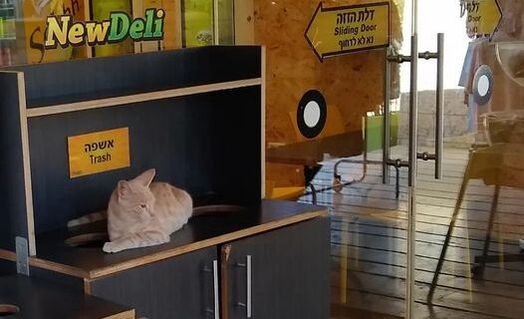
Israel is the most cat friendly country... Many people used to be scared of cats. Scared to throw out trash in Jerusalem. Scared to get attacked for leftover scraps. Now, we appreciate what Israel does for the preservation of the feline. New Deli, we thank you for what you do for your kindness to animals, and your excellent burgers... To note: The tables were full of food. Not one person cleaned their table for the half hour the cat was there.
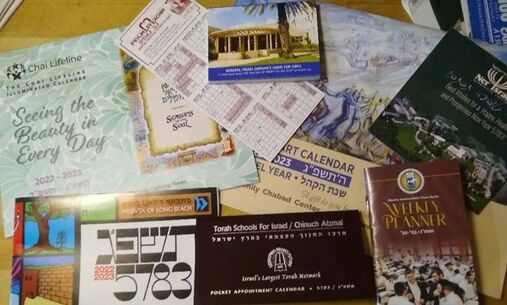
Rosh Hashanah is coming up and I now have enough calendars. To note, they will not get any donations from me. At least until they start sending books about rabbis again, they’re getting nothing from me... I apologize to all. I had more calendars, but I threw some of them out when I realized they all had the same date for Yom Kippur… Side Notes: I shall not fall for this calendar mailing scheme this year. Until they go back to sending me books, they're getting nothing... And somebody please tell them that once somebody goes to Olam Haba (the world to come), they can't send you money anymore. LAliyas Nishama to all of those who have moved to Olam HaNishamot (world of the souls) and are still receiving letters from Jewish organizations (they never give up).
The Blog Tags Widget will appear here on the published site.
Tags:
The Recommended Content Widget will appear here on the published site.
The Breadcrumbs widget will appear here on the published site.
High Holiday Seat Tips9/29/2022
Rosh Hashana & Yom Kippur are about your seat. Contrary to popular belief, the High Holidays are not about a new year or introspection. The High Holidays are about a decent seat and where you are located in the shul. That’s more important than what book you’re written in.
Do not complain. You are part of a community. That means that you don't have a seat if you don't pay, or everybody will talk about you on Yom Kippur. Being that you have to buy a chair, here is what to expect, how to claim your spot, and tips on getting the best bang for your buck out of your High Holidays seats in shul. Purchase a Seat You do not want to be the outcast, sitting there for free, in the 'I didn't pay my dues' section. Especially if you are single, purchase a seat. Show people you can commit to something. Purchase a Seat in Shul as Quickly as Possible Synagogues are packed on the High Holidays. Something about judgment, life and death makes people feel religious. And that means purchasing seats in shul. Make sure you get your seat as soon as possible, so you can get an aisle, or something not next to a heavy guy. Think about it like a flight. This isn't Shabbat. People show up. So make sure you purchase a seat real fast. A quality seat, preferably near the exit, so you can escape during the sermon. If you are lucky enough to go to a shul that has been around for a while, get a cushioned seat. Those go fast. For comfortable seating at a much lower cost, show up to shul on Shabbat. Due to the lack of regular confrontation with demise, many Jews skip these weekly services. For this reason, I have suggested to many rabbis to focus more on death in their sermons; in order to boost weekly attendance. Tiny Seats in Shul You may want to purchase two seats. The new seats in shuls are tiny. They aren’t made for people. Tiny little bucket stools. If you're a half a person, you can fit in with your leg over the armrest. The optimal discomfort would be to sit everybody on a plane for Shofar blowing. Being that it is forbidden to fly on the holidays, they are doing the best that they can with little children running around the synagogue and pews. As the High Holidays are about penitence, they tried to create a formula for discomfort and space. They went to the boutique movie theaters and figured that you can make the seats more uncomfortable if you make them out of wood and cut them in half. If you take a pew and seperate it, you can frustrate the congregants and make the hard wood even more uncomfortable. It's too late to take off the 80 necessary pounds to fit into one of the seats comfortably. If you can find a seat at the end of the row, you can lean at a 45-degree angle for the fifteen-hour service. This level of comfort is acceptable, as the leaning gives a look of penitence, and there is a chance that you will throw out your back. Chasing People Out of Your Assigned Seat Come ready to fight and claim your seat. There are people who try to buy the cheap seats, off in the back of the shul. They're always trying to sneak down to the front to get a better view of the action. Sometimes they hang out at the Bima to get a good look at the Shofar blower. You purchased the seat, you deserve the right to catch a good glimpse of the cantor’s top hat. You deserve to be part of the excitement. First start with a little Tallit smack. Put on your prayer shawl with a big swing, so the tassels smack the guy in the face. Let them know how it works when you paid top dollar for a seat and somebody is in it. You can also tattle. This is no different than a baseball game. Find an usher and have him take care of the matter. Make Sure You Do Not Sit in front of A Pew That Has Prayer Book Holders Shtenders, prayer book holders, behind your seat is worse than any repeated word, with extended notes, by your cantor. That Shtender and the person behind you can truly make Yom Kippur an uncomfortable day. They started making the Shtenders just small enough, so the guy’s Machzor (High Holiday prayer book) is smacking the back of my head the whole service. Discomfort being the key, last Yom Kippur, as I was hitting my heart, I used my third hit to whack the guy in back of me. I then took the guy's Machzor which was in my neck, and smacked him with it. I always questioned why all holy books were hardcover. It all makes sense now. Thanks to this experience I feel closer to the holy words of our tradition. Then I kicked him. He wasn't in my seat in shul, but somebody had to let him know that we are in the middle of the Day of Atonement for our sins. After throwing a couple of punches at him, I feel like I got out all of my hatred for other people. I felt extremely penitent. Share the Armrest Be prepared for having to share your armrest with selfish people. This is the season of repentance. Be decent person. They make sure to provide one armrest for every two seats. My nephew thinks the whole row is his armrest. Leaning across the thing. Work with your fellow human being. Enough of the passive aggressive fight that has been going on in synagogues since the beginning of time. Be kind. This is a little thing we all can do, to make for a more giving society. Working on our positive personal character, is a large part of repentance. Go frontsies-backsies with your neighbor. Maybe go for arm against arm support. Do repentance like the Rambam says, and say, 'I will never elbow fight again with my neighbor.' Make a resolution that makes a difference, and next time you fly say, ‘This is your armrest, just as much as mine.’ Nobody is going to share the armrest. Lets be honest. They're all selfish. Good luck being comfortable this Yom Kippur. If you have to, spread yourself out and claim the area. Fight for your seat if you have to. Being kind can ruin the Yom Kippur experience. Remember: Though it may be expensive, you are not allowed to take the seat home. There is a reason they bolt those things down. Next year, we will focus on seats for poor people, who have been ostracized and banished to the plastic chair section. May we all be written in the book of decent seats. The Blog Tags Widget will appear here on the published site.
Tags:
The Recommended Content Widget will appear here on the published site.
The Breadcrumbs widget will appear here on the published site.
Announcements
Shofar blowing will take place at 10:30am, or 9:45am if the rabbi's Drasha is shorter. Or 12pm if he goes on again like last year. People are allowed to time the Tekiah Gedolah. We just ask that nobody get too excited if the rabbi's blast lasts longer than sixteen seconds. High fiving and screaming 'what's up. Did you see that???!!!!' is not proper in shul; especially when others are praying for their lives, knowing that there's a good chance they're written in the book of death, as the rabbi mentioned. Please note: stopwatches are forbidden on Rosh Hashana. The Shabbat Shuva Drasha will be sponsored by the Minkowitz family who likes it to be advertised whenever they give money. Next Shabbat, the rabbi will talk about stuff most of the shul won't understand, to ensure we all have a meaningful High Holiday season. That should help all return in penitence. From now on, everything in our shul will be a program. We will not do Shabbat dinners anymore at shul. We will run Festive Friday night programs, with festive food, with confetti popping out of potato kugel. As Jews don't practice tradition anymore, we understand that we have to practice programs. Rabbi Mendelchem’s Sermon Excerpts Shabbat Shalom My Pupils... Please sit down... Nitzavim. Stand here today before H' in judgment. In prayer. Not during my sermon... Just sit Bernie. It's rude... (Devarim 29:9) 'You are all standing before H' this day.' Standing means they're there. Not sleeping through the sermon... They showed up to shul. This isn't a game of Simon Says... You would all be out. I didn't say 'Simon Says.' Sit. Standing means sitting before H'... Because it's rude to stand. Standing means they were there. They showed up to shul. Not just when they were scared they were going to be written in the book of death... They came when it wasn't the High Holidays. And the sanctuary looked like it had members. (Rashi) Moshe brought everybody to enter them into the Brit... That's a covenant, Fran... Moshe brought the whole of the Jewish people. I would say that he would've left out our congregation. It's almost impossible to get you guys to show up to Minyin. If you never show up, you're not in the covenant... Because you weren't there. This isn't the whole 'and the ones who aren't here today.' It was talking about the future generations... Showing up for the shul picnic doesn't count, Mike... Everybody. was there. (29:10) '...The your young children, your women, and your convert who is within your camp both your woodcutters and your water drawers...' Where are the shul water drawers. We can't even get anybody to help with Kiddish... The sisterhood does nothing. And we definitely don't have any woodcutters. Everybody was there. They showed up. They were there. The Gabai didn't call up Rafi to the Torah and then have to figure out where he was... Rafi was there. All were included. They weren't snobs. They were accepting, unlike the members of this shul that are anywhere from 25 to 70... They looked at you and say Hi. People wanted to be around them... People don't come, because they don't want to be around you... We want to keep our kids out of shul... Their young kids were not loud and annoying back then. Their parents watched over them. Made them behave and shake hands... Your kids walk around and don't even return Good Shabbis calls. Rosh Hashana, we will be blowing the Shofar with everybody here... Except babysitting. Exactly. Last year the kid cried a sixteen second wail. Nobody talked about the Tekiah Gedolah… They were focused on finding the pacifier for Tanner. How that kid is Jewish with that name.... Think about what you want to do as people. As a nation. As yourselves.... With the water drawers too... I understand they don't pay full dues, and you make it a point to not look at them to say Hi... Chances are you're in the book of death. I know you. You deserve... Repent. That's all I'm going to say. You're shallow and snobby, and only show to shul when you're worried... That was for Kaddish. You had to come... Rosh Hashana is not a program. Which is why the board was against having services this Rosh Hashana. Being a good Jew is not a program. Standing is not an exercise program. We're not playing Simon Says... Sit. And work on your squats at the gym. You stand for Kaddish, Kidusha, when the ark is open, then you sit back down. It's for services. For tradition. Not for reps. Everything is now a program. What happened to tradition? To services?... It's pathetic, and annoying. I don't want to dance a Hora at a Shabbat meal. I want to eat, like our tradition says to. Eat and get heavy... You cancelled Tehillim and made it Tehillim education… You do stuff. you do Tehillim. Doing stuff is more educational. Especially than going to classes with Fran... Now we've got this new youth director. Everything is education. No services. No practice. Just education... The kids hate it. No kid wants education... For youth, you do programs. Programs like 'Keep Shabbat for Once.' Or programs like 'It's a Holiday. You're in Services. Keep Your Mouth Shut'... We have a Chazin. That's painful enough... The whole shul is turning into a beginners service. An explanatory service. So now we have festive Friday night explanatory dinner programs... Conversation is a Jewish program. Why not just have conversation?! What is this Friday Night programs the board is running?! Festive?! Is there going to be graffiti jumping out of the potato kugel? This year, you should live as Jews. Let the year be a program of keeping Mitzvahs... Yes. That is a Bracha. Keeping Mitzvot and doing good deeds is a blessing. Even if it's not a program... Standing before H' as a people, and entering the covenant is not a program. It's a way of life... You are sinners. If you showed up once in a while... Just show up. And you can be part of the covenant. Here's a Siman (an vegetation omen for the Rosh Hashana meal). Our enemies should have to deal with our board... That's a curse. That and they should have to show up to programs. It's about being together. Standing as one... Not being the sinner, like Frank and Jessica, who bring everybody here down... but they stand with us too... Oy. God. We have suffered enough with programs this year. May we be forgiven as one, and never have to deal with the board again... The Minkowitz family is sponsoring the Shabbat Shuva Drasha next week. Rivka’s Rundown The rabbi ended with such a beautiful Bracha there. A Bracha for all of our people to stand together. As he said, 'It's only as one that we can receive the Torah and the covenant of our people. Which is why we're revoking half of our congregation's membership.' Some guys were working out in shul. They felt bloated from all the meals they had this past year, and wanted to get in exercise before Rosh Hashana. They were doing reps. Literally. The ark wasn't open and they were doing box squats on the chair. One guy yelled, 'You got a few more in you.' No 'Amen.' Just 'You got a few more in you.' And then there was a grunt instead of the yawning High Holiday between paragraph moan. I've got to be honest. I can't stand these congregants that sometimes say 'Hi' and most of the time turn the other way. A bunch of snobs. It's like they need something when they say 'Hi.' If they don't say 'Hi' all the time, I don't like them. Social climbers. Is it a classy thing to not say 'Hi' to people? I don't get it. If you smack them, do they then turn their heads and acknowledge you? The rabbi and the board worked it out. He is not threatening them anymore. He just gets to not show up to the classes and programs. Some classes have had no presenter. I think the rabbi has been skipping his classes. He is rightfully mad that they have substituted tradition for programs. The rabbi hates the new Tehillim education. Just do it. That's his motto. His and Nike's. But he says it's his. The festive thing is annoying. Can't have a decent dinner. Colored paper flakes flying out of the brisket and we have to dance the Hora around the table. I just like decent conversation. I am with the rabbi. Conversation is a good program. The rabbi started a Hilchot Teshuva class. We learned the Rambam’s laws of repentance. He said that was tradition and not a program. The board was against it. And the rabbi said the board is required to come, because they are all sinners, and he can’t stand praying with them. He also said they have not concept of tradition, and a Jewish youth director should be Jewish. An amazing Shabbat Shuva Drasha. And it wasn’t even Shabbat Shuva yet. Not many sources, but everybody listened once the rabbi told the congregation as a whole that they're all probably in the book of death. It definitely will help bring more Kavanah to Rosh Hashana davening. Every Drasha by our rabbi is a Shabbat Shuva Drasha. He goes off on how messed up the congregants are and how they have to not be like themselves. It always feels like Yom Kippur in the shul. Which is what makes it so spiritual. And nobody understands some of the ideas the rabbi speaks of, which always makes it more spiritual. The rabbi's sermons can throw off shul timing sometimes, even though he blames the Chazin. I believe he spent a good half hour telling everybody that they need to hear the shofar to not die. Such a message. The water drawers are people too. It really spoke to me. The rabbi likes the people who don’t pay dues. They come to shul. By the rabbi mentioning the Minkowitzs at the end of the sermon, he raised a lot of money for the shul. As the office told the Minkowitz family, 'That was product placement for you.' Nobody remembered the Shabbat Shuva Drasha. They remembered the Minkowitz family name. The Blog Tags Widget will appear here on the published site.
Tags:
The Recommended Content Widget will appear here on the published site.
The Breadcrumbs widget will appear here on the published site.
The Rambam teaches that to do Teshuva (repentance) correctly, you must confess (Viduy) and say 'I will never do it again.' We learn from here that the most important part of repentance is to lie.
Rambam Hilchot Teshuva 1:1 To do proper Teshuva, you must do Viduy which consists of ‘Please H’, I have sinned by accident, I have sinned purposefully, I have sinned in defiance, before You. And I did such and such. And I regret and am embarrassed by my deeds. And I will never return to this again.’ Hence lying is the essence of Teshuva. You have to lie to God with sincerity. ‘H’. I feel so bad for having a good time. I will never do it again… Or at least until after Sukkot, when You stop judging us.’ This guy seems to have done every sin imaginable. The real question is, what is 'such and such'? 'Such and such' is a long list. It usually starts with eating chocolate. Chocolate seems to be the biggest sin people are worried about. That's why you hear about vows of not eating chocolate again when it comes to New Years. Other such and suches are 'I had the best burger of my life at Wendy's.' 'I watched too many series and didn't learn enough Torah.' 'People needed me and I enjoyed myself instead.' I've got to be honest. If somebody every tells me they did such and such, our relationship is over. Nobody does such and such to me and gets away with it. It's rude. Have you ever heard anybody regret something and not do it again? No. People always eat chocolate again. The statement my congregants should make is, ‘It will never happen again till Sukkot, when I forget about it.’ Or 'I would've never said that if I wasn't worried that I would be written in the book of death.' Or 'It's my rabbi's fault. I blame him for everything.' I pray for all that you will be able to celebrate full repentance, and stick to your lies, so you don't end up in Gehenim. And those lies should have you written in the book of life, enjoying chocolate. The Blog Tags Widget will appear here on the published site.
Tags:
The Recommended Content Widget will appear here on the published site.
The Breadcrumbs widget will appear here on the published site.
We have the traditional signs in Hebrew, known as Simanim, to say how our enemies should die through violent vegetation. What about Simanim for the English speaker? Here are fruit and vegetables and some creative curses in English, that I came up with, to make your Rosh Hashana more meaningful (I will try to rhyme, as rhyming is important for warding off evil):
Curses with Fruit & Vegetables Aubergine- ‘Like a carrot not dressed, may all their eggplants be undressed, with no tahina or bean. Just a plain eggplant, with no identity, confused like aubergine. And dead.’ Death truly adds to this Siman. Bananas- ‘May our enemies slip on the ground, like a banana that’s been split. And then be scattered, because they split.’ I feel that using the banana split line makes for a good substitute for a rhyme, and it is scary. Broccoli- ‘May they be broken like broccoli, and have their stem separated from the rest of their tiny tree. And not to be able to mix with any vegetables because they are awesome by themselves.’ I like broccoli too much. Maybe if my enemies knew that, they wouldn’t be enemies. Brussel Sprouts- ‘May our enemies sprout like a brussel and never turn into a cabbage. But very tasty. Tasty and dead.’ Cantaloupe- ‘May all evil wonder, and not know whether or not they are a deer, like an antelope, when I am eating my cantaloupe. Confused. Not knowing if they're a melon or not. Because it's not in the name.' Celery- ‘May all evil get stuck with parents who give their kids peanut butter on celery, instead of candy. Not enjoying their snacks.’ This can cause great sadness to our enemies. Corn- ‘May their hearts be torn, like when I rip into a corn.’ That sounds too much like a spell. Eggplant- ‘May all enemies be confused like a plant that is called an egg. Thinking that they came from a chicken.’ Fennel- ‘May our enemies die like a dog in a kennel, that was forced to eat fennel, because their owners didn’t care about them.’ I feel bad for that dog. Kiwi- ‘May all our enemies end up in New Zealand, because there aren’t that many Jews there, and it makes for decent cinematography. Like tasty kiwi, may we still be able to slaughter animals, ritually.’ Sometime our political enemies have to hear our plight. Not just the enemies in shul, who take my seat on Rosh Hashana. Who should die a starfruit death. Leaves- ‘May our enemies make like trees and leaves.’ Lagenaria- ‘May all evil catch lagenaria, and if that is not a disease, then malaria.’ You can also use, 'May our enemies be cursed with not getting lasagna for dinner, as they were hoping. And end up eating lagenaria.' That's a very strong curse. Lemons- ‘May life give them lemons.’ That is a curse for people who don’t know how to make lemonade. Sour people. Naartjie- ‘May our enemies be stuck with oranges for a high fee, like a naartjie. And mandarin themselves in the eyes, and then…’ Got carried away with that South African fruit name. Orange- Pulling together the trilogy of citrus… ‘May all evil have to listen to jokes about bananas that end with “orange you glad, I didn’t say banana,” with a life full of little kids that can’t tell jokes. Knocking on your door all day, with knock knock jokes, stuck in your mind like a foot in the door hinge, while you're glad you’re not an orange. Who’s there? Orange you glad it’s me?’ Don’t tell this curse to the little ones. It will hurt them too much. Parsley- ‘May our enemies be stuck with no basil or oil for pesto, and no rosemary. A whole year of Passover, with just salt water and parsley (stuck in the teeth).' Pear- ‘May our enemies not dare to stare at a pear. Because they are tasty apples, and that would not be fair.’ Ahhhh!!!! Bring it on. The curses are rolling off my tongue. As are the rhymes. 'May our enemies have to listen to rhymes.' Pickles- 'May they die the slow death of a cucumber that's been pickled. And then have their eyes stung by the juice. Pickled eyes.' This is a horrific curse. You must really hate the enemy to use this one. Pomegranate- 'May our enemies get hit with a palm that is made of granite.' A palm made of granite would hurt. Brilliance. I know. Tomato- 'May our enemies be crushed like a tomato, and used for jachnun.' Please note, I kept this in alphabetical order, so that you can reference it. I hope I am not scaring you, and that this is educational. I just wish I had a greater knowledge of the plantae kingdom and fungi family. My knowledge of monocots is so limited. Other foods were pulled out over the course of dinner last year, which were not vegetables. Yet, they did not have a curse for it. It was the first course, and they just wanted to eat it. They pulled out fish, and made the blessing, ‘We should all be for a head, and not for a tail.’ The fish fit the Siman perfectly. I like heads and I loved it because that sign was Gummy Fish. Not everybody likes fish, but everybody likes gummies. So, don’t be afraid to use candy to curse out your enemies. ‘May our enemies have bad teeth like one who chews on their lollypop.' If you're stuck with an apple and honey, you can use, 'May our enemies die like an apple that's stuck in honey, and can't get out.' I feel like I am scaring the children right now. Next year, I will try to give you some blessings. But for now, let's focus on cursing our enemies. The Blog Tags Widget will appear here on the published site.
Tags:
The Recommended Content Widget will appear here on the published site.
The Breadcrumbs widget will appear here on the published site.
It has been too long since our last major holiday. I've been working, and it got me thinking. Thank Gd Purim and Pesach are coming. I need a break.
I loved the holidays as a young boy and I still love them today. Holidays meant days off from school. And that meant happiness. A happiness engraved in my soul. So, I bring you some of memories of my love of holidays in third grade. I Loved the Food Brisket meant two days with no school. That juicy meat was good, and it meant no classes. That's how I associate with brisket. My mom was always happy around holiday time, as it's a Mitzvah to be happy. She would also complain about the two day holidays that Jews keep when they are outside of Israel. Apparently, my mom didn’t like cooking as much as I thought. I thought she delighted in cooking the required 15 meals, for the seven of us, and the guests. She would call it slaving. Even so, she looked nothing like the Jews leaving Egypt. I had a picture Haggadah. I never saw one of those slaves cooking. My mom would never let the guests know of her situation as a parent. If she would have told somebody, they might have gotten her out of it. At a certain point, when I took my first standardized test, I began to understand my mom. I told the guests about true slavery. I Loved Praying Holidays meant shul and prayer. I felt so close to Gd when I was in third grade, that I prayed every day for no school. I even began praying for brisket. That prayer went, ‘May my mom not be a slave, so she can cook.’ Believing in Gd meant more vacation and I connected with my religion. I wished the holidays would last all year. I wouldn’t have to go to school and my mom would be able to make a hot lunch every day. This way she could get used to cooking all the time, and not feel like she was slaving. As I learned in school, the more you get used to something, the less it feels like a chore. And that was true for everything, but school. One thing that had me questioning omnipotence, was bagged lunches. Half Day of School is Still Religious I would also get excited for minor holidays. I define minor holidays by celebrating in school. That meant my parents would have to go to work; that didn't hurt my celebration. Even when we did have school, holidays meant more art projects and other activities we called religious, because they taught us nothing. On Purim, we would have a half day of school and that was the Purim carnival. I even enjoyed the throw the sponge at David’s face booth, as I was committed to the community. I would risk my well-being for the sake of fewer classes. Even fast days were great, as we would get half day off of school. I became a devout youth and started praying for more tragedy. Chabad Loves Booths & I Love Chabad The Chabad rabbis always had these great booths. We would get to skip class for a shofar making booth, where we made shofars we couldn’t use. We also learned about the bad smell of a ram’s horn. They also had a grogger making booth, for Purim, where we made noise makers that were too heavy to pick up. I was a big fan of the booths, though the Chanukah Menorahmobile, with the lit candles, always looked dangerous. I stay away from booths in transit. Factories are Better than Booths There was the Chabad Matzah Factory, or as I called it, dream day. This took place a week before the Pesach. The Matzah Factory, multiple booth set-up, including a field trip. A whole half a day off from school, to have us flatten dough for Passover. Though it was matzah, we couldn't it eat on Passover. That was part of the education, letting us know that no matter how well we kept the commandments, it was not good enough. As such, our Matzah was not fit for Passover. I was happy with the sweatshop Matzah work. Many people look at sweatshop work as though it is negative. They think, child labor is wrong. However, it is OK if it is for education. The school also had us selling chocolate bars at a 600% profit, for which we received a rubber basketball if we sold $500 worth, as child labor is OK if done for education. I loved holidays before the holidays even happened. Half a day off of school. Who could have ever thought that 18 minutes could last so long? Holidays with Full Day of School = Not Jewish These days were of religious nature, as we had an extra art class. Even so, as much as I loved papier-mâché, they were not Jewish to me. This is why I never considered Martin Luther King Jr. a Jew. Not to offend. I knew when a non-Jewish holiday was coming, as 'Day' always followed the name. Lincoln Day, Martin Luther King Day, Evacuation Day, which they kept us in school for. Other kids never got days off of school for their holidays. Which made me feel bad for the Christian kids at Hillel Jewish Community Day. Poem from Third Grade by David Kilimnick This might just say it all: Oh Shabbat How I love you Pesach, Sukkot You are the joy of every Jew Shavuot, Yom Kippur I love you too I love every day When we don’t have school Mrs. Funsten gave me a bad grade on that, though ‘school’ loosely rhymes with ‘Jew.’ I had a diction problem and never was able to pronounce the ‘l.’ And that was wrong of her. Sundays Don’t Last all Week Would I have traded my religion for a whole week of Sundays? Yes. But you have to live in reality, and I never witnessed anybody who had a whole week of television. Heaven does not exist on earth. Educational television gave me hope for a better world. ‘321 Contact’ was that little piece of heaven brought into the hell of school. Those genius 8-year-old detectives were as close to redeemers I have ever witnessed. I love you Bloodhound Gang. I have no idea how you made it to Mrs. Funsten’s class, but thank you. You taught me that gangs are good. Finished School - Still Religious? Once school stopped, I had no reason to be Jewish. I could have as many vacation days as I wanted. Then I got a job. I was once again a believer. I got to take days off of work because of my religion… Then they started making me come in on Sundays, because of the holidays I took off. I will forever love our holidays. Holidays, food and no school are one in the same. I can't wait for Purim next week, and Pesach next month. If it was Thanksgiving, it would be just as good. We got off of school then too. And my mom made brisket. Thou shalt not lie. If we would've had a day off and recess, I would've loved being Jewish more. For the educators of our youth, I am putting that out there. The Blog Tags Widget will appear here on the published site.
Tags:
The Recommended Content Widget will appear here on the published site.
The Breadcrumbs widget will appear here on the published site.
The Skeptical Litvak – They All Are
The rebbe didn't show up for Selichot prayers during the Ten Days of Repentance. The people of Nemirov asked, ‘Where is the Rebbe?’ And all the disciples now had to repent for speaking Lashon Hara. Speaking gossip is a sin. You shouldn’t ask such questions. It leads to gossip. But they did, as it was about the rebbe, and everybody talks about rabbis. People love to talk about rabbis. You see the rabbi at the restaurant and everybody’s talking about how he didn’t have enough intent with his blessing, and too little stuffed derma. Discussion continued and the Chasidim knew there is only one place their rebbe could be. In heaven. A Litvak came to the town during this time of Selichot, early in the morning, and he noticed the rebbe's absence. The pupils of the Rebbe of Nemirov said, ‘Where is our Rebbe? He is in heaven.’ And the Litvak laughed. It was more of a guffaw. We all know Litvaks are very sarcastic. They’re straight and they have no creativity with their practice of Mitzvot. When was the last time a Litvak celebrated Shabbat by starting a bonfire, playing an electric guitar, throwing together some fireworks, and tanning a hide? No creativity. Upon hearing that their rebbe was in heaven, the Litvak knew the rebbe was up to something. To quote the Litvak, ‘I have seen many people try to get out of Minyin. People love to skip Selichot. I’ve heard people were sick, with a cough. I’ve heard people had to go to work. They didn’t even have a job. I’ve even heard people say they had to watch their kids, when we had babysitting at the shul. But using heaven as an excuse to get out of services?!’ The Litvak laughed and reprimanded, ‘You fools. Your rebbe is not in heaven. Even Moshe, our great leader, didn't go up to heaven. It’s impossible.’ And the Litvak said, ‘I will find out.’ And he did. Sleeping Under Somebody’s Bed is Not Comfortable – Even if They Are a Rebbe That evening, the Litvak snuck into the rebbe's house and slept under his bed. The Litvak was scared. Of course, he was scared. It was even creepy back then to sleep under somebody's bed. But the Litvak did it. I don’t suggest sleeping under anybody’s bed. There is no precedent to sleep under somebody’s bed, unless if you are their student. Then it makes sense. You learn their snoring patterns, and you can be a better disciple. He wanted to see what the rebbe was up to. He had to get to the bottom of this skipping prayers racket the rebbe was running. And the Litvak was going to figure it out, by trespassing and hiding under the rebbe’s bed, and taking some of the rice cakes he found in the kitchen. It wasn’t easy. He couldn’t breathe normally or the rebbe would figure him out. He also couldn’t breathe normally, because of the dust under the rebbe’s bed. The rebbe wasn’t known for sweeping. They didn’t have Swiffers back then. It was a hard night and the Litvak didn’t get much sleep. The rebbe even took a fly swatter and smacked him with it a few times, thinking his room was infested with loud bedbugs. What Rebbes Do When They Skip Prayers and Selichot The next morning, when all had left the house, the rebbe got up. ‘Ah Ha. The rebbe wakes up late. Everybody else was out of the house at 5:30am and the rebbe is only moving at 5:35am. A sloth,’ thought the Litvak, ‘I got him.’ Then, the rebbe put on peasant clothes, and took an ax and rope with him. The rebbe went to the forest and cut down a tree, then cut it into pieces and tied it in the rope. He was the only in shape rabbi I’ve ever heard of. I’ve never heard of a rabbi who does anything but go to the shvitz. Rabbis sit and sweat. They don’t exercise. Not the Rebbe of Nemirov. He exercises. Two hundred pushups every morning. The Litvak was lucky he skipped them that day. Legend has it that no other rabbi could take the Rabbi of Nemirov in an arm wrestle. But that's a different story of inspiration. He competed in strong man competitions and lumberjack carries under the name Vlad. The rebbe started dragging the wood. The Litvak was still there, following the rebbe. He was very good at stalking. He had done it before. If I recall correctly, there was another time the Litvak slept under a rabbi’s bed because he was interested in finding out what he wears under his Bekishe. What’s under the rebbe’s coat has always been an anomaly, The Litvak was disturbed. Why did the rebbe need to start a wood business? Why are his disciples not paying him enough? Why do the rebbe’s students not sleep under his bed? Are they just not good pupils? Why is the rebbe killing the forest? There were many questions. The rebbe dragged the wood to a poor women's house who was sick, and he knocked on the door. You don’t just enter a house, unannounced. She probably would’ve shot the rebbe. This story is based on the Chasid's account. That student of the rebbe was following the Litvak. I can’t tell you what kind of house it was. You have to ask the Litvak. I believe it was wood. Might have been brick. Not a sturdy foundation. A very nice kitchen. Granite countertops. Granite was big in the 1800s. The poor woman asked, ‘Who’s at my door.’ The Rebbe said, ‘Vassil.’ Vassil is not a Jewish name. Nobody names their kid Vassil. It hurts their chances at a good Shidduch. She told the rebbe he can come in. The rebbe’s sale, posing as Vassil, was, ‘You don’t have money? You can repay me later. You believe in Gd, but you don’t believe that He will give you six kopeks?’ The rebbe wasn’t a very good businessman. He could’ve got more than six kopeks out of her. He could’ve told her that she didn’t have to pay him a thousand kopeks. But he didn’t. He missed the moment to make a bit. The Litvak however, learned a valuable lesson. The Litvak became very rich later in life, when he sold a house for eight million kopeks, by telling the guy that if he believes in Gd he should buy it. The guy purchasing the house only had a million kopeks. With newfound belief in Gd, due to the Litvak’s sales technique, the guy borrowed the rest from the bank. The guy lost the house when he couldn’t make the first payment. Thank Gd, the Litvak got top dollar on the deal, What Happens in A Poor Women's House The rebbe entered the poor women’s house. As the rebbe put the wood in the oven, he recited the first portion of Selichot in a groan. That’s the tradition. I know they do that at my shul. It’s early in the morning and you’re supposed to express how tired you are when repenting. If you show Gd how hard it is, and complain, He’s more merciful. When the wood began to burn and it became bright, he recited the second portion of Selichot with more joy. When the fire was lit and ready, he recited the third portion and shut the oven. Why the rebbe shut the stove, we don’t know. We hope the stove still made the room warm, even though he shut it. The Litvak was amazed that the rebbe knew the Selichot by heart. And who could recite the Selichot so fast?! The rebbe himself had been skipping the prayers all this time. The Litvak became a Chasid of the Rabbi of Nemirov. And every year, when they spoke of the rebbe ascending to heaven during the Days of Awe, the Litvak wouldn’t laugh anymore. The Litvak would say, 'If not higher.' And then he would tell everybody how the rebbe Davens too fast and had to work on his Kavanah. Lessons of What Followed The Litvak learned the lesson from the rebbe and stopped going to shul. He started working as a laborer and never helped with Minyin again. The community wanted him to help with the quorum, but he said he can get closer to Gd by not showing up. Years later, the Chasidim of the rebbe learned of his great Mitzvah. Once the story got out, they couldn't get a Minyin in Nemirov for Selichot anymore. Many don’t know the truth behind the story. It was the rebbe’s morning workout. He had to get it out of the way, and he knew the Litvak was following him. He couldn’t just chop down a tree and leave it. The Litvak would know the rebbe was just trying to get jacked. Why the rebbe didn't use his strongman name, 'Vlad,' we will never know. The rebbe groaned when putting in the wood, for he killed his back carrying the bundles all the way to the sick woman’s house. The Litvak couldn't get a hint. The least the Litvak could’ve done is offer to help. If you’re stalking somebody already, you might as well help. The rebbe was singing the Selichot more joyously once the oven was lit, as he wasn’t freezing anymore. The house was very cold. Being the proper guest the rebbe is, when he’s in the character of Vassil, he didn’t want to complain to the woman. The poor woman tried finding Vassil to pay him the six kopeks. She wanted to pay him back so badly. Trying to pay back Vassil, she got caught in the cold and came down with pneumonia. If she would’ve known it was the rebbe, she would’ve been a healthier woman. She would’ve went to his house and even given a donation to the Yeshiva. The Litvak couldn’t mock the rebbe anymore and he lost his sense of humor. ***For the story, also see I.L. Peretz’s Selected Stories The Blog Tags Widget will appear here on the published site.
Tags:
The Recommended Content Widget will appear here on the published site.
The Breadcrumbs widget will appear here on the published site.
The High Holidays were arriving and the rabbis of the community had no idea what to do.
'We can't have people in the shul,' shouted Berel the Gabai, who didn't want to have deal with giving people Aliyahs. Duvidel said, 'We can have them in shul. They just can't be together.' And all yelled at Duvidel. 'You fool. If they are in shul, they are together. That is against the rules. We will have a Minyin with people outside the shul.' And so it was, the community stood looking into the shul as a quorum, for Rosh Hashana, and nobody could hear the shofar. For Yom Kippur the Wise Men and Women decided that all needed to hear the prayers for it to be a quorum. Feivel asked, 'How can we have a quorum if we are not together?' And thus Rabbi Fishel ordained, 'A Minyin has to take place together.' And all protested the rabbi who didn't care about life. As Chaya Fayga said, 'We want to be written in the book of life.' Rabbi Fishel was shocked, not knowing how what he and thus he remained quiet, for he wanted to keep his job. Chaya Fayga went on, 'We will have the quorum separately. They'll come to outside the shul. We will have the Minyin apart. Pray together in quorum, not together.' And all the Wise Men and Women were in agreement. 'Chaya Fayga is our real leader.' 'We will be in a tent,' Berel the Gabai said, as he knew that people won't complain about their being called up to the Torah if it is windy outside. And he knew that the honors of opening the ark would not be a hassle if there was no ark. Bayla, in awe of his brilliance, let all know, 'That is my Gabai. That is why he is our Gabai. He knows.' 'But we can't be in the tent together,' retorted Chaya Fayga. And all looked at each other in agreement. We know all the Wise Men and Women were in agreement, as their mouths went into a half frown and they shook their heads at each other from side to side. 'We will be in separate tents then,' responded Mendel. And Chaya Fayga said, 'But if the tents are together...' And all agreed again with a side to side head nod. And it was ordained by Fishel the Rabbi, who was happy to not have a Minyin, 'We will each have our own shul. That’s how we’ll bring the community together.' And it was decided that each person should build their own shul. And it was. Each home was a shul, and nobody gave towards their building fund, and many of the Wise Men and Women ended up homeless. Epilogue Moishele had his shul, and said, 'I am not going to show up to my Minyin.' Feivel made it clear that Moishele never showed up to Minyin. The rabbi received tons of hate mail telling him he should get out of the community. Most of the mail insisted that the rabbi wants people to die. To quote, ‘How can you want people to be together, in their own shuls? Do you not care about people?’ The other rabbis of the community accused Rabbi Fishel of poaching their members, to pray in their separate shuls. Another congregant said the rabbi doesn’t know what he’s talking about. Truth is, they loved saying that about the rabbi. Rivka, in support of the shuls at each person's home, insisted that separation has kept us one community throughout the ages. The rabbi took a lot of backlash for not understanding that keeping people apart is the best thing for our people. The rabbis of Chelm, who didn't want people at shul, are now mad that everybody started their own breakaway Minyin. Simchat Torah was also social distanced, as Feivel said, 'We must dance together separately. As Jews, we hold hands and dance in circles. Each person will make their own circle.' And all the Jews of Chelm formed their own circle. When they noticed nobody was at shul the next morning, the Wise Men and Women called everybody to shul. For the Simchat Torah Dancing, everybody sat down at a proper distance of six feet from the next person. And that is how Hakafot took place. For the first days of Sukkot Bayla used her Lulav as a way to ward off any community members that tried saying 'Chag Sameach.' The Blog Tags Widget will appear here on the published site.
Tags:
The Recommended Content Widget will appear here on the published site.
The Breadcrumbs widget will appear here on the published site.
Rosh Hashana begins with a meal, as all Jewish holidays, and we pull out fruit and vegetables, eat them as 'signs,' and ask Gd to make the coming year a good one. That always means better than last year. The previous year was never that great. It was decent, but it could be better. So, we ask Gd for a good year and show Him some of the fruit and vegetables that could've had a longer shelf life. Thus, we ask for a better year where the cucumbers don't spoil after three days in the fridge.
We have a beautiful huge meal, to make up for any food we might have lost out on the year prior. We don't want to go into the year thin. That would give us nothing to do. Nothing to pray for. Last year, I dieted all year. I also sinned a bit, so I would have something to ask Gd for during the Ten Days of Repentance. With all that in mind, I shall tell you about what I now know every Jew should be prepared for when in Israel. Eating in America Did Not Prepare Me Known as Simanim, the signs at the meal, I grew up with an apple in the honey and a pomegranate representing Mitzvot. That is all my Ashkenazik upbringing prepared me for; cute little blessings of a sweet new year and a stained shirt. We would even sing a cute song, just in case somebody was scared of apples and honey. We sung the song 'dip the apple in the honey, say a blessing loud and clear. Shana Tova uMituka, have a happy sweet new year.' It was cute and harmless. The pomegranate wasn't harmless, so we didn't sing a song about it. We just said that it represents a lot of Mitzvot, and accepted the fact that our shirt would get stained. Israel was nothing like this. There was no cute song. The apple-honey rhyme didn't work in Hebrew. I don't know if it's every dinner, but whatever song that family was singing my first Rosh Hashana in Israel had me feeling the Pesach Seder all over again. Everything sounded like 'Ha Lachma Anya' to me, and I was in for a shock. They sung with real deep voices that I was not prepared for, due to their size. The only thing that my Jewish upbringing in America prepared me for was eating a lot. My First Interaction with Violent Fruit The Israeli family brought out beautiful fruits and a fish head. The fish head kind of went with the 'Ha Lachma Anya' feeling of leaving Egypt. And the next thing I know, the whole table started focusing on enemies. They were using fruit to curse out our foes. That was when I knew that I will never mess with an Israeli while they are eating. They started taking carrots in their hands and saying that 'Gd should cut down our enemies like a carrot.' I learned later that the root word for carrot in Hebrew is the same root as 'cutting down.' They went through all the fruits on the table. Even the gummy strawberry was used to mock those who try to bring us down. Personally, I would think that if you give a gummy strawberry to an enemy, they're going to be your friend. They'll stop attacking and start picking gumminess out of their teeth. Don't Mess With Israelis The shock continued at that dinner, and the next night's dinner too, where the family pulled out squash. I started seeing our Jewish people in a whole new light. We are a relaxed people, passive in nature, but you throw fruit and vegetables into the equation and we get very violent. When we summon Gd while eating gourds, we are not a people you want to mess with. Work in a rhyme and we are wiping out all evil beings. Work in a pun and decrees of judgment are raining down. Peace ruling the world through seasonal local produce. And watch out if they start with alliterations. 'Crazy criminal counterattack country' is what I’m talking about, with 'kumquats.' More People Do It One of the tables I was at a couple years years ago pulled out a carrot, whose root must have many meanings, and said, ‘May it be Thy will… that their decrees be those of judgment.’ And then, they cut a fruit and said that the juice should blind the enemies, like it did the owners of the house when they squeezed it by accident. I Am Scared That last meal had me scared. The shock of my first Rosh Hashana in Israel turned into fear. I started picturing the horrors that carrots can do to people. With a Hebrew name whose root means ‘decrees,’ I was scared to eat. I didn’t want to know the food's verdict. I had nightmares about cucumbers and tomatoes. I started having flashbacks to pickles and pickled tomatoes I had growing up. I didn’t eat Israeli salad for half a year. I was eating falafel with a pita, tahini, and that’s it. I couldn’t use Chumus either. At that last dinner, they said something about Chumus and Hamas. I am over much of my fear. I now eat with my family on Rosh Hashana, and we dunk the apple, saying, ‘May this be a sweet new year.’ I don't believe my family can handle floral self-defense. Going back to my Ashkenazik roots, I wanted to stop with all the other requests that angiosperms can bring. I was still scared of the Israeli salad, cut up so small. It hit me that fruits can be used for good and evil. Food can be used for good and evil. You can own a fruit shop, like my grandpa, and provide people with star fruit, so they can eat something on Rosh Hashana they would never want to eat otherwise. It took me a while, but I learned my lesson. And I now know what the Simans are for. I feel it is time we embrace our tradition and focus on eating fruit and vegetables that will wipe out the evil from our lives. I am not scared of my Israeli brethren. I know that they are using vegetation to protect us. It is about wiping evil out of our lives, so that our year can be one of blessing. A year where we don't have to eat fennel. A year, where we put on weight from the sugar found in plantation. Ever since those first Rosh Hashana dinners, I have had nightmares about carrots. When they pop up in coleslaw, I'm taken aback. I am never eating carrots again, just in case there's another root I don't know about. Please don't mention Tzimis. As for you, you should enjoy all the fruits and vegetables at the Rosh Hashana dinner. And don't be scared of carrots. I am still in shock and trying to figure out how carrots can free us from our enemies. You should all have a sweet new year, where our enemies rot like carrots. A year where people can finally laugh at puns and not judge them. The Blog Tags Widget will appear here on the published site.
Tags:
The Recommended Content Widget will appear here on the published site.
|
A well put together cover page for a Jewish newspaper. I knew I was reading a Frum Jewish newspaper, as they found a way to fit 28 ads on the cover page. And the feature article is an ad for Amor jewelry... A properly written Jewish magazine should be advertisements. I once read a non-religious magazine, and I felt like a sinner when I read an article to only find there was no phone number at the end of it. I felt defiled… It’s a shame the Amor ad is so big. They could’ve got another 20 ads in.
(Shulchan Aurch 568:1) One who eats by accident on a fast must continue fasting. Making for a three hour fast to fully mourn the Churban of the Temples. I believe that break between meals fully calls to heart the true yearning of my soul over the loss of the Batei Mikdash... You can't eat once you remember you sinned, as one who committed a sin can't commit a second by snacking once they're already full.
Categories
All
Archives
July 2024
|
© 2021 Kibbitzer Magazine and JHF. All rights reserved.
The Kibbitzer, where we take Jewish comedy seriously!!! If you are offended, it's satire.
A friend of the Off The Wall Comedy Theater, JHF and The Kibbitzer are here to bring unity and Jewish connection for you, in honor of Rabbi Kilimnick ZT"L.
The Kibbitzer is Funded by the JHF (The Jewish Humor Foundation) and you.
Contact us to make a donation and to sponsor Harbatzas Tzchok, the spreading of tradition through laughter, with articles or series in honor and memory of your loved ones.
The Kibbitzer, where we take Jewish comedy seriously!!! If you are offended, it's satire.
A friend of the Off The Wall Comedy Theater, JHF and The Kibbitzer are here to bring unity and Jewish connection for you, in honor of Rabbi Kilimnick ZT"L.
The Kibbitzer is Funded by the JHF (The Jewish Humor Foundation) and you.
Contact us to make a donation and to sponsor Harbatzas Tzchok, the spreading of tradition through laughter, with articles or series in honor and memory of your loved ones.

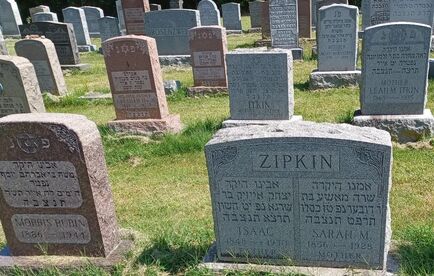
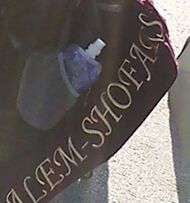
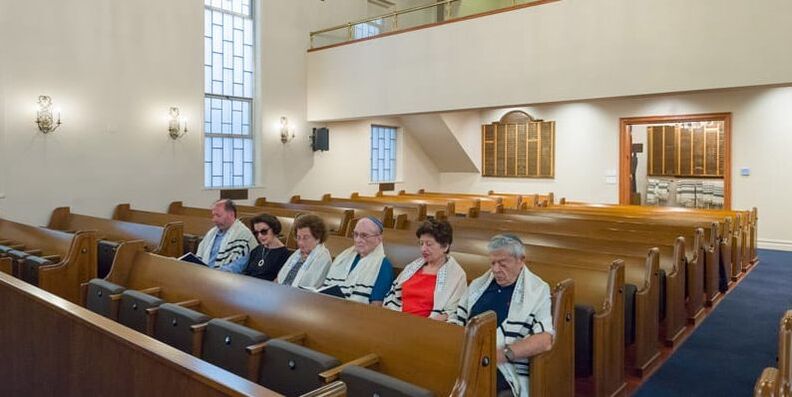
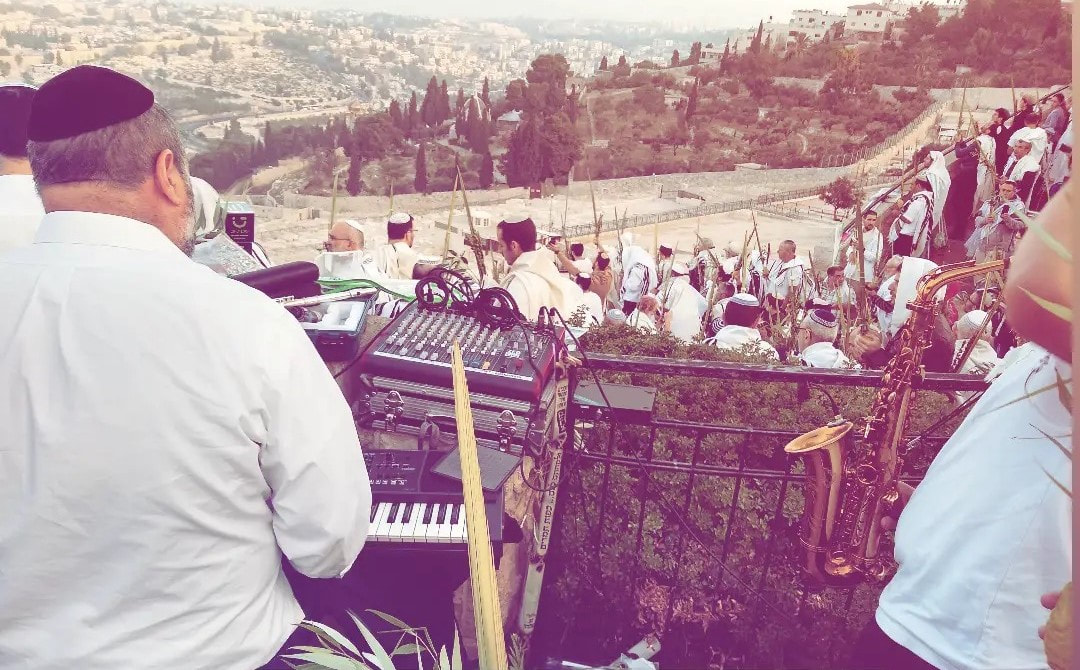
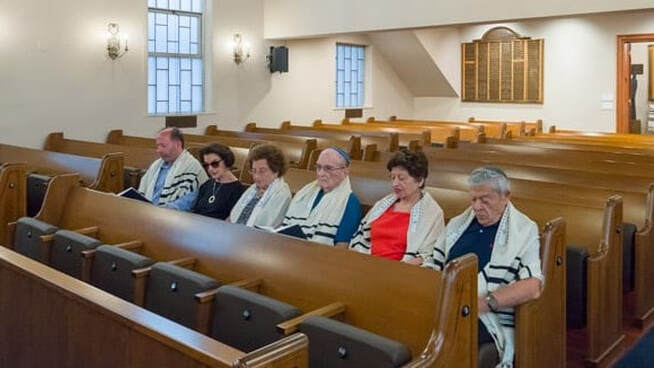
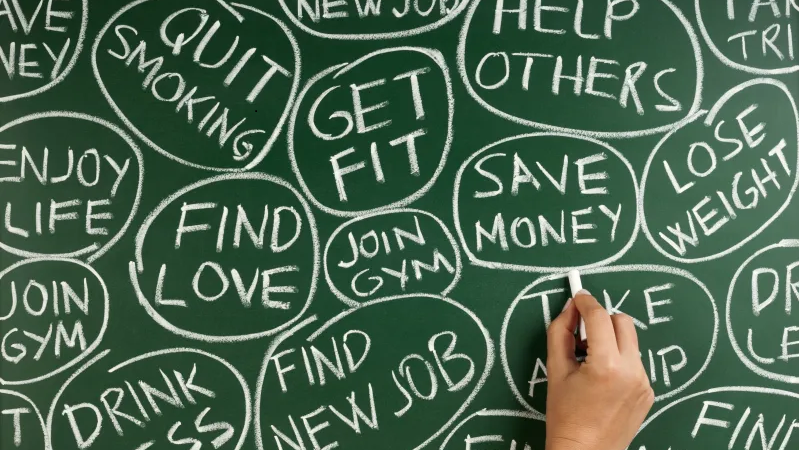
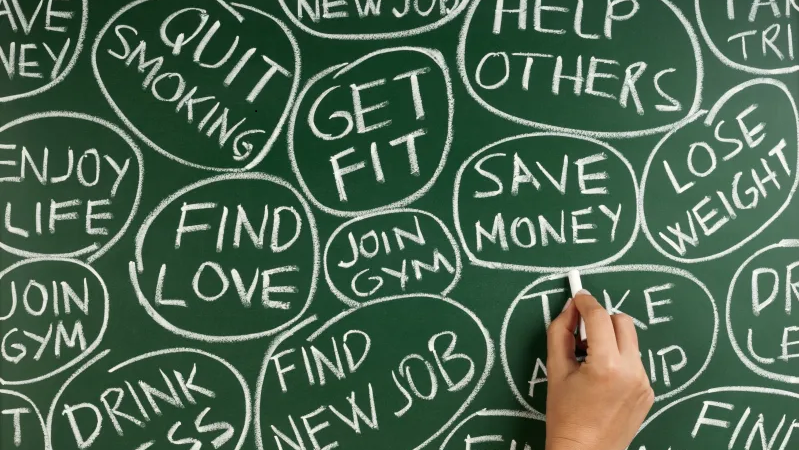



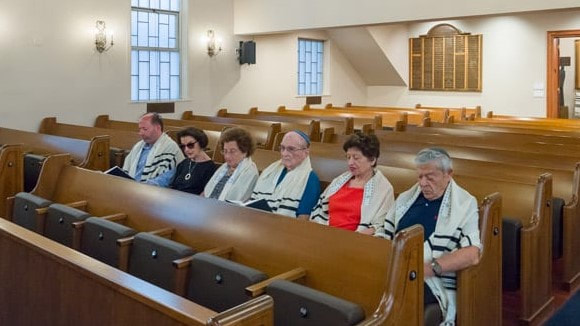
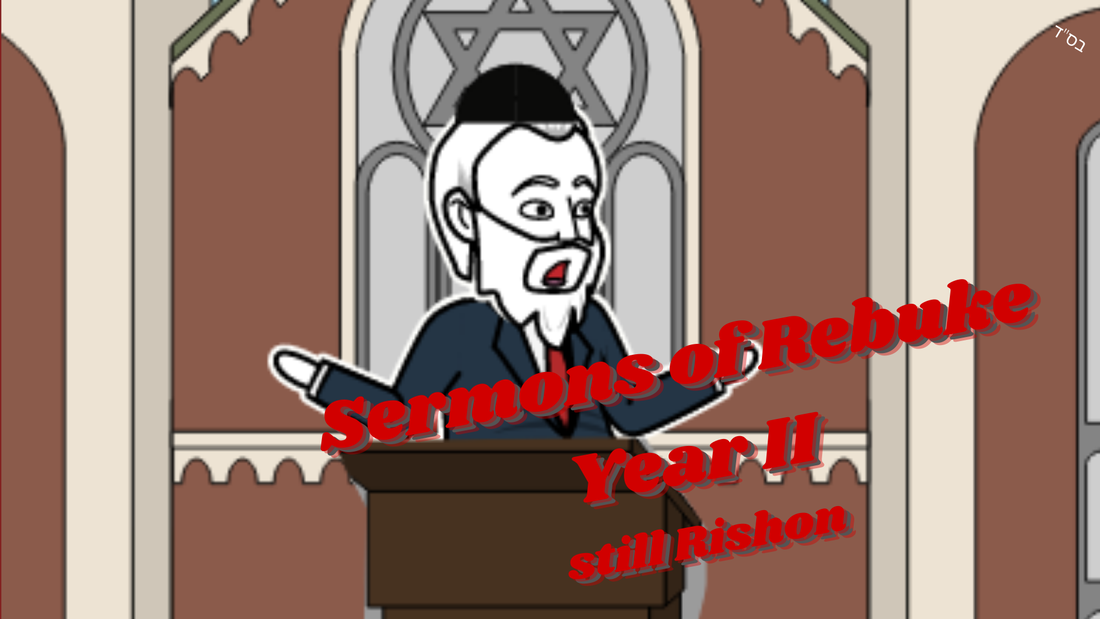
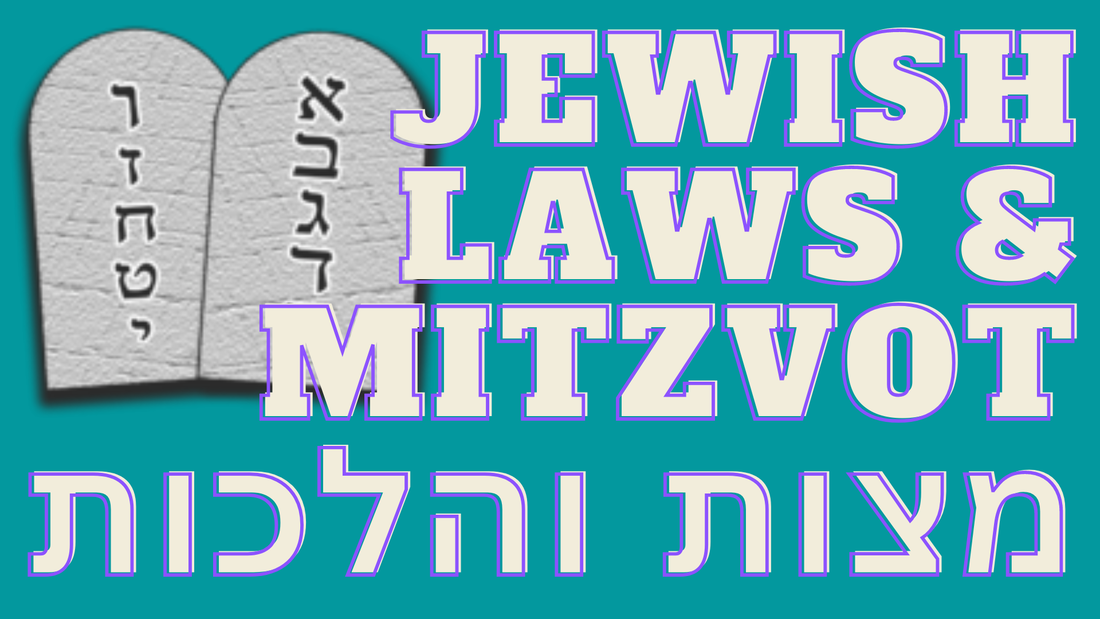
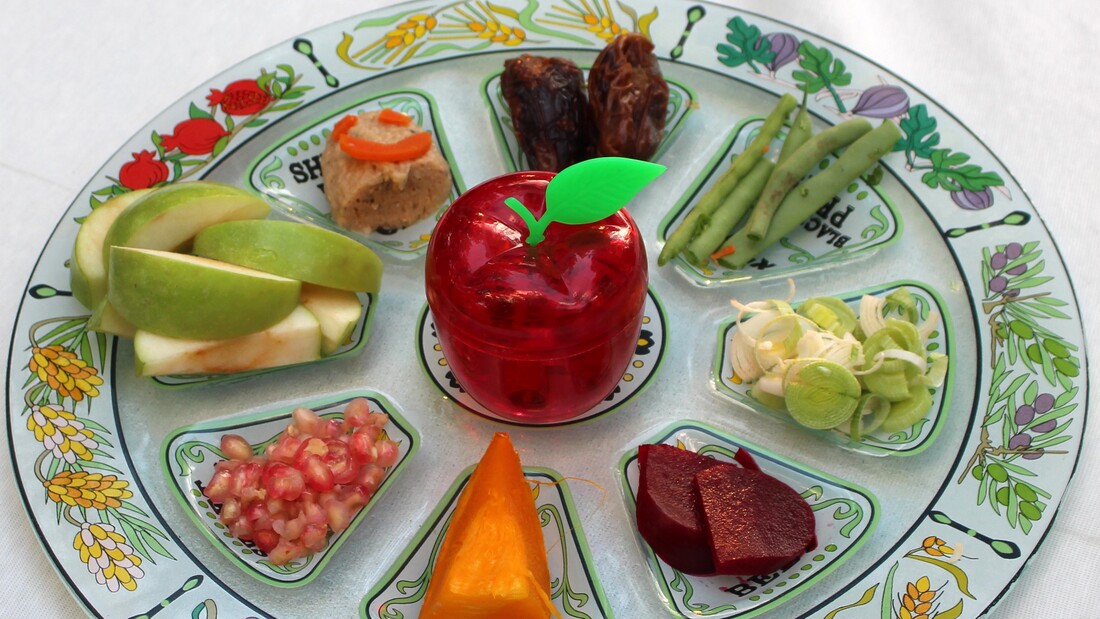
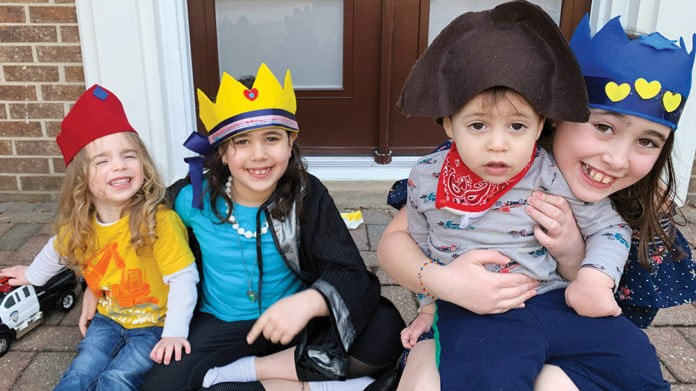
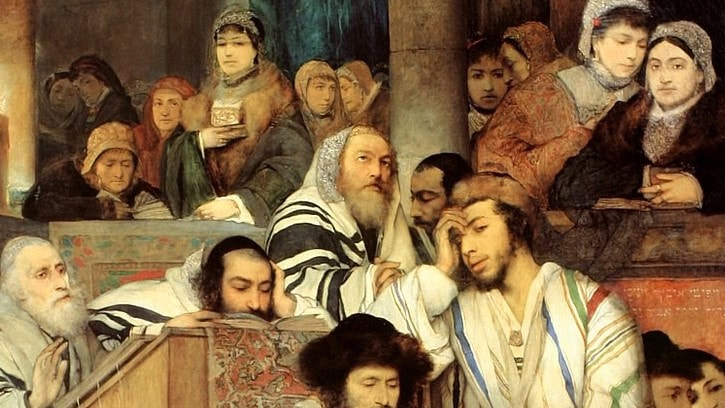
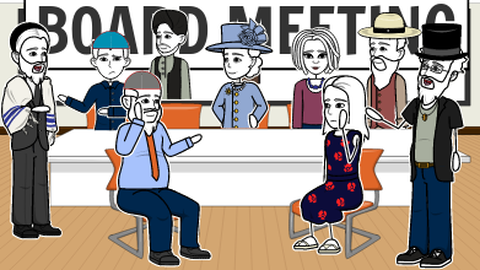




 RSS Feed
RSS Feed

10/5/2023
0 Comments